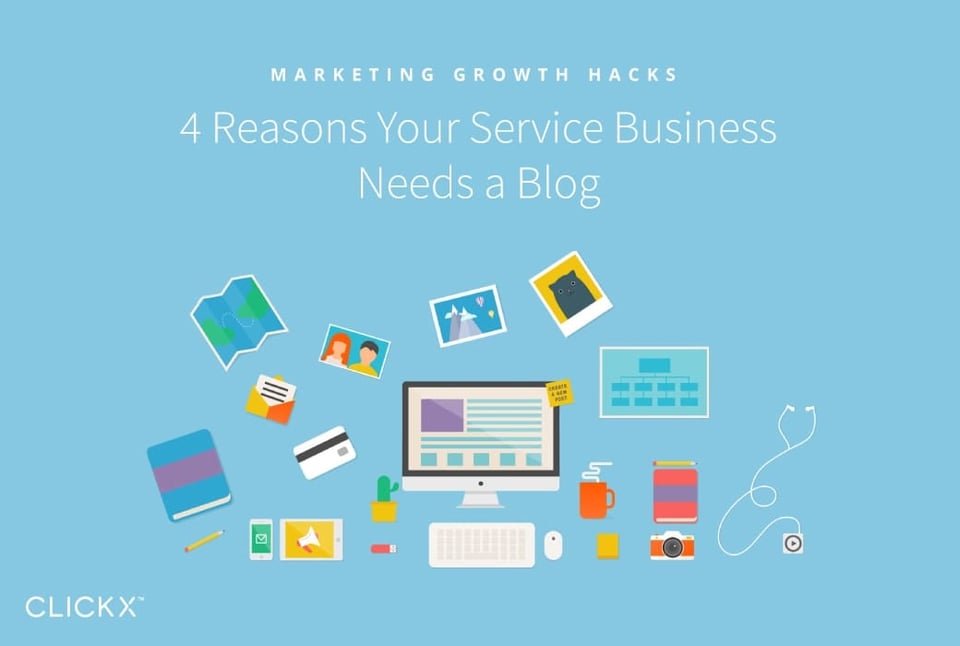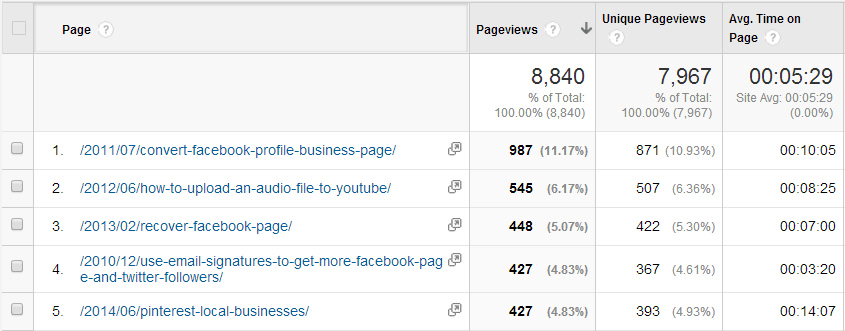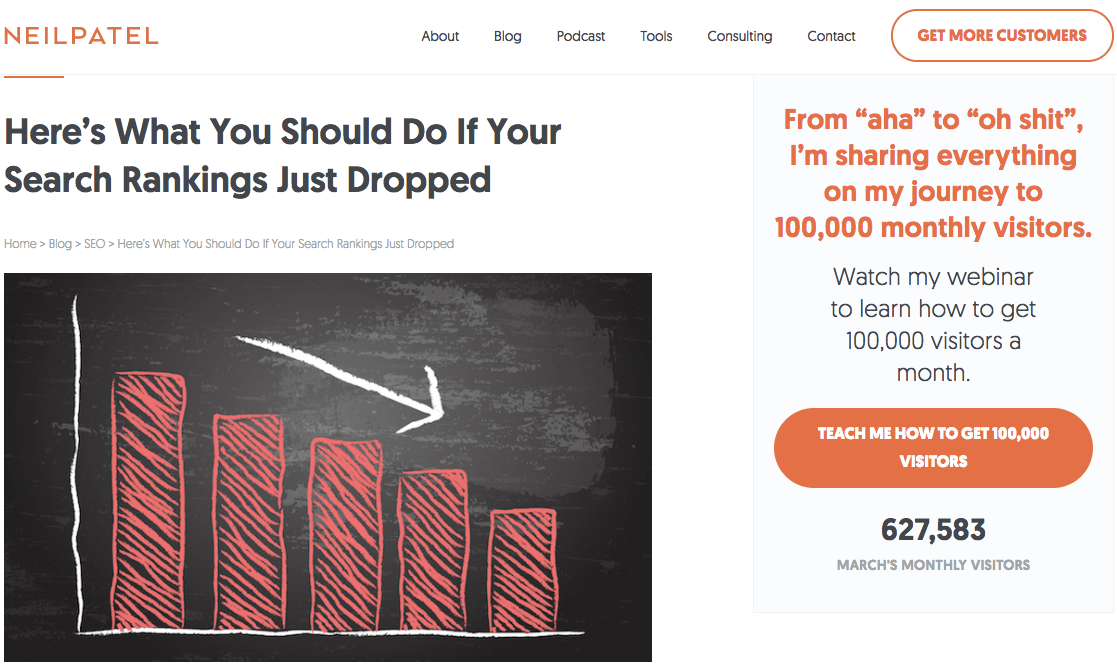4 Reasons Your Service Business Needs a Blog
Creating and implementing a blog strategy can take some time. From developing new topic ideas to writing and optimizing posts, creating content isn’t always easy, especially when you’re trying to run a successful service business. When you have a million other things on your to-do list, your blog might not seem like a high priority.
However, while it may not replace your best salesmen, a solid blog can make their job a lot easier. Since your content can do everything from attracting higher quality leads to developing trust with your target audience, your posts are helping you reach your business goals—even if you don’t realize it.
If you’re still not convinced that blogging is important to the success of your business, let’s look at our top four reasons why it should be a priority.

Key Takeaways:
- Blogging helps you spread brand awareness and get your name in front of new audience members.
- Maintaining a blog can help you build trust with your target audience so they’re confident in purchasing from you.
- Consistently posting interesting blog content can give visitors a reason to return to your website.
1. It Can Increase Your Search Engine Visibility
In order for your SEO strategy to be successful, you need to find new opportunities to upload content featuring your keywords. Blogging enables you to regularly add fresh content without having to make major changes to your site’s main pages. By boosting your SEO strategy in this way, you can greatly increase your search engine visibility.

Creating a blog for your service business can also keep visitors on your site for longer periods, as we can see in this Google Analytics example from Business2Community. When you’re sharing valuable, engaging content, they will also be more likely to browse additional pages. Statistics like time spent on-site and the number of pages visited per session indicate to Google and other search engines how helpful your site is, and can affect your rankings.
When creating your blog strategy, consider which keywords you’d like to target for each post. Then develop a few informative or interesting topics around those keywords.
2. It Provides Content for Social Media Sharing
Social media can be excellent for directing fans and followers towards your website. However, if you’re simply posting links to product pages, you’re probably not going to see great results. On the other hand, if you’re using interesting blog posts to direct them towards your product pages, such as in the below example from Hubspot, you have a much better chance of seeing link clicks on your social media sites.

Moreover, you’re not the only one who will share blog posts through social media. Customers may share your content with their own friends and family members, or other companies and industry leaders may include your posts in their social media strategy. This allows you to get in front of new audience members and attract new customers.
Include blog content in your social strategy by publishing social media posts each time you have a new piece of content. You can also promote old blog posts in an effort to bring additional traffic to them. Also, make it easy for readers to share your posts by including built-in share buttons.
3. It Can Help Convert Traffic into Leads
When a visitor gets to your website, you typically only have a small window of opportunity to convince them you’re worth their time. In order to attract and keep their attention, you need to share information that they actually want to read. An effective way to do this is through your blog.

Your blog content needs to provide the information your visitors are looking for, as in the above example from CoSchedule. This in-depth piece of content serves various purposes, including proving the authority of the company and providing links to other helpful posts as well as products. In order to convert visitors into leads, you need to hook them by answering a question they have or providing them with advice on how to overcome a problem.
Each post should have a unique purpose and end goal that pushes the reader to do something. Include a call-to-action at the end of each post, either requesting they engage in the comments, check out a product or service, or subscribe to a newsletter.
[Tweet “Include a call-to-action at the end of each post to convert visitors into leads.”]
4. It Helps You Establish Industry Authority
Creating high-quality content for your website enables you to establish yourself as an authority figure in your industry. In this position, you’re more likely to see higher traffic volumes, earn more quality backlinks, and improve your overall reputation. Neil Patel is a great example of an industry leader with a strong blog.

Having authority in your industry can also improve your brand’s worth. When your blog is a go-to resource for customers and other businesses in your industry, you’ll be more in demand and can charge a higher price for your products or services.
To become an industry leader because of your blog, you need to create extremely high-quality content. This includes detailed and informative posts on topics that you cover better than anyone else. It’s also a good idea to inject some personality to make your content truly unique.
Bonus: It Enables You to Test Topics and Get Feedback
Your blog is a low-cost, low-risk place to market. Since you control what content is posted and how long it is displayed, you can test certain topics or content types with your target audience and monitor how they respond. You can garner useful feedback, like in the below example from Semrush, and use it to improve future content.

Using your blog as a testing ground for new ideas can save your company time and resources. You can create a post or two around a certain topic, see whether or not it gets a lot of attention, then decide if it is worth investing in. If it gets a great response from your target audience, you can then create additional pieces of content, like videos or webinars.
When using your blog to test new content ideas, you need to pay close attention to comments, shares, and views. Of course, if you’re including other calls-to-actions, those conversion numbers will be of huge importance too. Using analytics software, such as the features available within the Clickx App, can help you determine how well your new material is doing.
Conclusion
Blogging is one of the best tools for your digital marketing strategy. As a way to bring new visitors to your website without breaking the bank, uploading new content frequently can dramatically improve the success of your service business.
Let’s recap the five reasons your business needs a blog:
- It gives you an opportunity to improve your SEO strategy.
- You can share content created for your blog on your social media platforms.
- High-quality blog posts can convince visitors to become leads.
- Creating expert-level blog posts can enable you to establish authority in your industry.
- Your blog offers the opportunity to test new topics and get feedback with minimal investment.
Which of these reasons will bring the most benefit to your business? Let us know in the comments section below!



